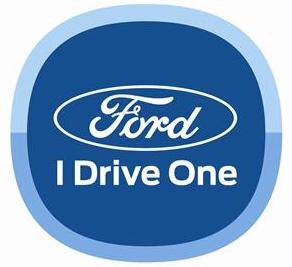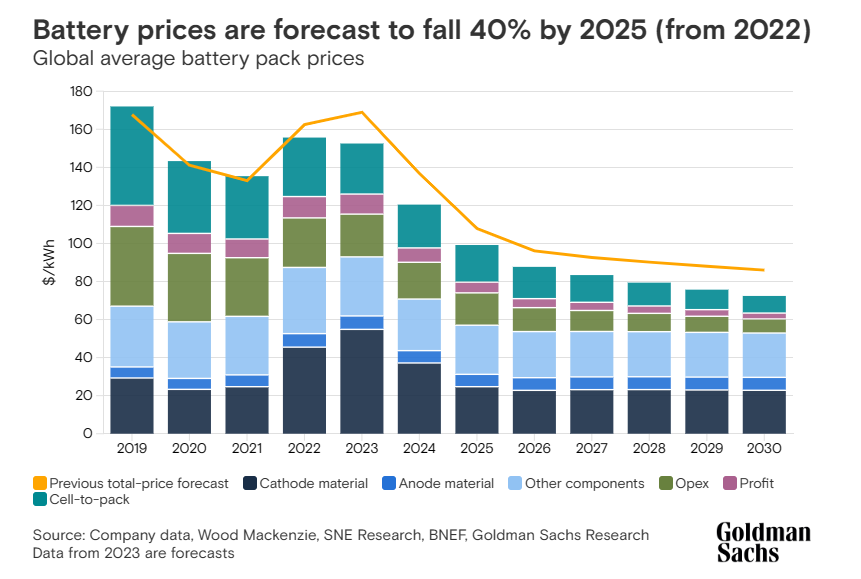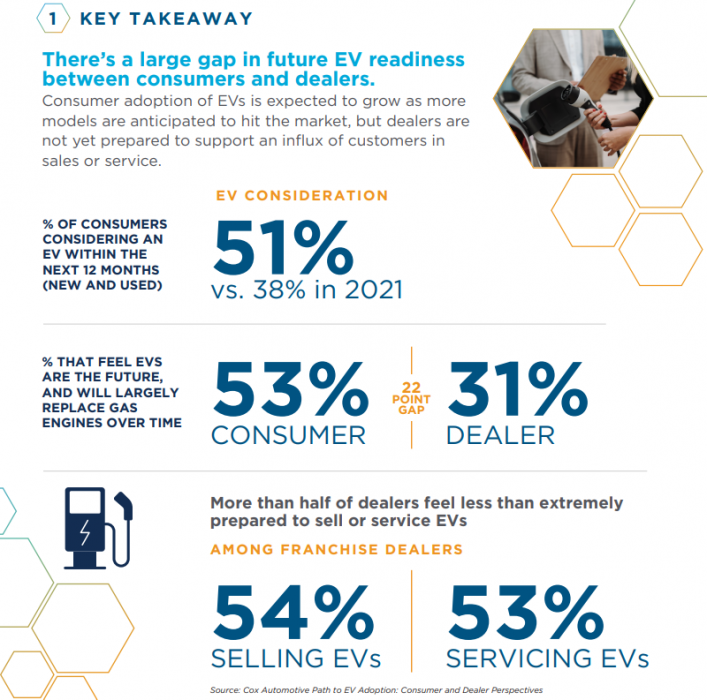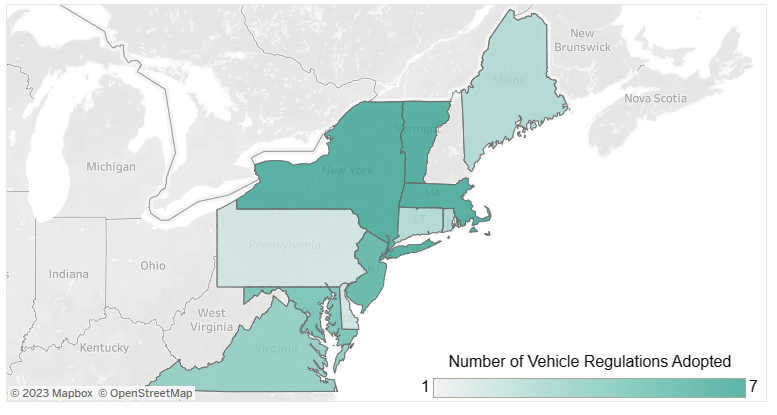

rperez817
Member-
Posts
5,949 -
Joined
-
Last visited
-
Days Won
14
Content Type
Profiles
Forums
Gallery
Downloads
Store
Everything posted by rperez817
-

Battery Prices Are Falling Again as Raw Material Costs Drop
rperez817 replied to silvrsvt's topic in E.V. Central
Hopefully the combination of technological innovation, intense competition, and economies of scale from production ramp ups that have already resulted in lower costs for BEV batteries will soon translate into "sustained drops in EV prices" due to the same factors being applicable to the vehicles themselves. -

GM Considering bringing back Hybrids for NA
rperez817 replied to mackinaw's topic in Competing Products
The global automotive industry's regulatory landscape for 2027 and beyond will be increasingly stringent for sure, but it's not uncertain and not complex. Compliance is best achieved with an all-electric lineup, which GM is pushing towards anyway. -
More details for 2024 Toyota Tacoma released today. All-New 2024 Toyota Tacoma is Adventure Ready Out of the Box - Toyota USA Newsroom Pricing. SR XtraCab 2WD: $32,995 SR XtraCab 4WD: $36,195 SR Double Cab 2WD: $35,195 SR Double Cab 4WD: $38,395 SR5 XtraCab 2WD: $37,695 SR5 XtraCab 4WD: $40,895 SR5 Double Cab 2WD: $38,695 SR5 Double Cab 4WD: $41,895 TRD Prerunner 2WD: $39,595 TRD Sport Double Cab 2WD: $40,895 TRD Sport Double Cab 4WD: $44,095 TRD Off Road Double Cab 4WD: $43,295 Limited Double Cab 4WD: $53,595
-

Battery Prices Are Falling Again as Raw Material Costs Drop
rperez817 replied to silvrsvt's topic in E.V. Central
Here is the "story behind this price decline" that Bloomberg referenced but is missing from the quoted part in the OP. Expanded economies of scale for the entire value chain especially for raw materials used in cathodes, anodes, and electrolytes is the primary factor, though technological innovation is still important. -
Demand is more than sufficient. In 2020, just 3 years ago, BEV sales in the U.S. exceeded 250,000 for the first time. This year, the U.S. BEV market is on track to jump past 1 million units sold. The biggest change since 2020 is that competition in the BEV market has intensified greatly as other automakers introduce a bevy of new models. For Ford, that means marketing initiatives that direct demand away from competitors' BEV and toward Ford BEV, integrated with corresponding efforts involving new product introductions, design, engineering, and manufacturing/production. That will lead to a virtuous circle that will bring not only the necessary economies of scale, but ultimately fulfill what Ford stated on page 24 of its 2023 Annual Report, "Ford has an ambitious plan to lead the electric vehicle revolution".
-
Most automotive industry analysts would probably say that Ford can't. The key thing is what akirby mentioned earlier, "having passionate buyers". In the BEV world as in the ICE age, full-size pickup trucks are more likely to attract passionate, high-end, status seeking customers than B-segment passenger cars.
-

Ford Reduces Requirements for Dealer EV Certification
rperez817 replied to ice-capades's topic in E.V. Central
Very sad that Ford executives dumbed down the Model e dealer certification standards just a few months after Cox Automotive's 2023 Path to EV Adoption: Consumer and Dealer Perspectives study made it clear that such standards for franchised dealerships need to be raised, not lowered. -
Among the 3 automakers you mentioned by name, none are incapable of profitably making vehicles that aren't pickup trucks (particularly the big ones). But Ford is the most dependent of those 3 on that vehicle type. That's why it's imperative that Ford "dramatically expand F-150 Lightning production and also bring BEV/Lightning versions of Maverick, Ranger, and Super Duty to market ASAP" as I mentioned earlier in this thread, implement totally different strategies and approaches for design, engineering, manufacturing, and marketing of BEV overall (both pickup trucks and other vehicle types), and pick up the pace for both.
-

New Jersey to Require 35% Electric Vehicle Sales by 2026
rperez817 replied to silvrsvt's topic in E.V. Central
Advanced Clean Cars II aims to reduce GHGs as well improve air quality by reducing criteria pollutants (ozone, carbon monoxide, nitrogen dioxide, sulfur dioxide, and PM10 and PM2.5) from cars and light trucks. Here is the excerpt from CARB's Advanced Clean Cars II FAQ addressing both. Cars and Light-Trucks are Going Zero - Frequently Asked Questions | California Air Resources Board Are zero emission vehicles actually cleaner than gas cars? In full electric mode, an electric car produces zero tailpipe emissions, dramatically lowering smog and greenhouse gas emissions even when considering electricity generation. And even when considering emissions from the powerplant, electric vehicles are cleaner than gas cars. For instance, in California, where 45% of electricity is currently generated from fossil fuels, a gas car would need to get 134 mpg to match an electric vehicle. U.S. Department of Energy has developed a Beyond Tailpipe Calculator to estimate the total greenhouse gas emissions for your electric vehicle or plug-in hybrid-electric vehicle. You can enter your ZIP Code and calculate the tailpipe emissions for your car. The calculator includes upstream emissions to produce the car and battery. -
Actually, the auto industry executives who push their company's designers and engineers to make their pickup trucks (and to a lesser extent, BOF SUV) look "tough" have a good business rationale given the fact that those products are status symbols purchased by wealthy people. Quotes from J.D. Power, 3MPH Planning and Consulting, and Center for Automotive Research in a Consumer Reports article a couple years ago are below. As the auto industry transitions to 100% electric vehicles, including pickup trucks, automakers will have to figure out a way to balance "tough" looks, efficiency, and ease of manufacturing.
-

New Jersey to Require 35% Electric Vehicle Sales by 2026
rperez817 replied to silvrsvt's topic in E.V. Central
Among the states that are close to New Jersey, both New York and Maryland have already adopted CARB Advanced Clean Cars II rule. Pennsylvania and Delaware adopted some CARB regulations, but not Advanced Clean Cars II. -

Electric Vehicle Discussion Thread - Ford Related
rperez817 replied to rperez817's topic in E.V. Central
Most definitely AM222. It's disappointing that Ford no longer owns Spin. Sadly, Ford also got rid of both Chariot (crowdsourced shuttle service) and GoBike (bicycle sharing) a few years ago from its Smart Mobility business unit. From an electric vehicle standpoint, E-Transit would be a great fit for a service like Chariot. -
In the U.S., market, Hyundai Motor Group (including Genesis and Kia) is one of the biggest beneficiaries. In 2023, they overtook both Ford and GM for the #2 spot in BEV sales after Tesla. Hyundai's global COO said that the company is doubling down on BEV, and that "when you look at our battery-electric, PHEV, and hybrids, our sales are growing at about 50 percent, but EV sales alone are growing 100 percent". Globally, the most formidable competitor not just for Ford but for Tesla as well and really all automakers outside China is BYD. BYD Is About to Steal Tesla's Crown; Why China's Winning the EV Race (businessinsider.com)
-
Some of Ford's R&D work for BEV and software is independent of production volume, but due to the rapidly growing and highly competitive nature of the BEV market in general, Ford must scale up production of both BEV and BEV components at a commensurate rate to remain competitive. Just prior to his retirement last year, Ford engineer Hau Thai Tang said that the company needed to "better control costs and production variables in-house and scale production around the world with speed and quality" with its battery manufacturing facilities, and that remains true today.
-

New Jersey to Require 35% Electric Vehicle Sales by 2026
rperez817 replied to silvrsvt's topic in E.V. Central
In this thread? No. -

Electric Vehicle Discussion Thread - Ford Related
rperez817 replied to rperez817's topic in E.V. Central
Thanks for the examples DeluxeStang. Ford itself had its own electric scooter business unit when it acquired Spin in 2018. Sadly, Ford sold off that business in 2022. Currently Spin is owned by Bird Global. Let’s Go for a Spin: Ford Buys Scooter Company to Provide Customers a First-Last Mile Solution | Ford Media Center -

Electric Vehicle Discussion Thread - Ford Related
rperez817 replied to rperez817's topic in E.V. Central
Electric scooters represent one component of the super high growth micromobility sector, which McKinsey said last year "is the only thing that’s up in usage post-COVID-19. Public transit is still down versus pre-COVID-19 levels. Car sharing, e-hailing, ride hailing, and so on are on the same level, maybe a bit up." Mr. Rastelli is a successful businessman. In addition to operating HFX e-Scooters for the past 4 years, Rastelli is also the founder of Segway Nova Scotia, which he has run for 11 years. Segway Nova Scotia - Company Information (segwayns.com) -
That's true, and the current gen Camry Hybrid variant is indeed the best Camry. The problem is that hybrids have a short lifetime remaining and won't be 100% viable in the near future. Toyota's investment redesigning Camry for model year 2025 without a BEV variant is extremely shortsighted.
-

Electric Vehicle Discussion Thread - Ford Related
rperez817 replied to rperez817's topic in E.V. Central
Great story from Ford on how an F-150 Lightning owner in Canada used those trucks to grow his business. Customer Uses F-150 Lightning to Power E-Scooter Business | Ford Media Center




